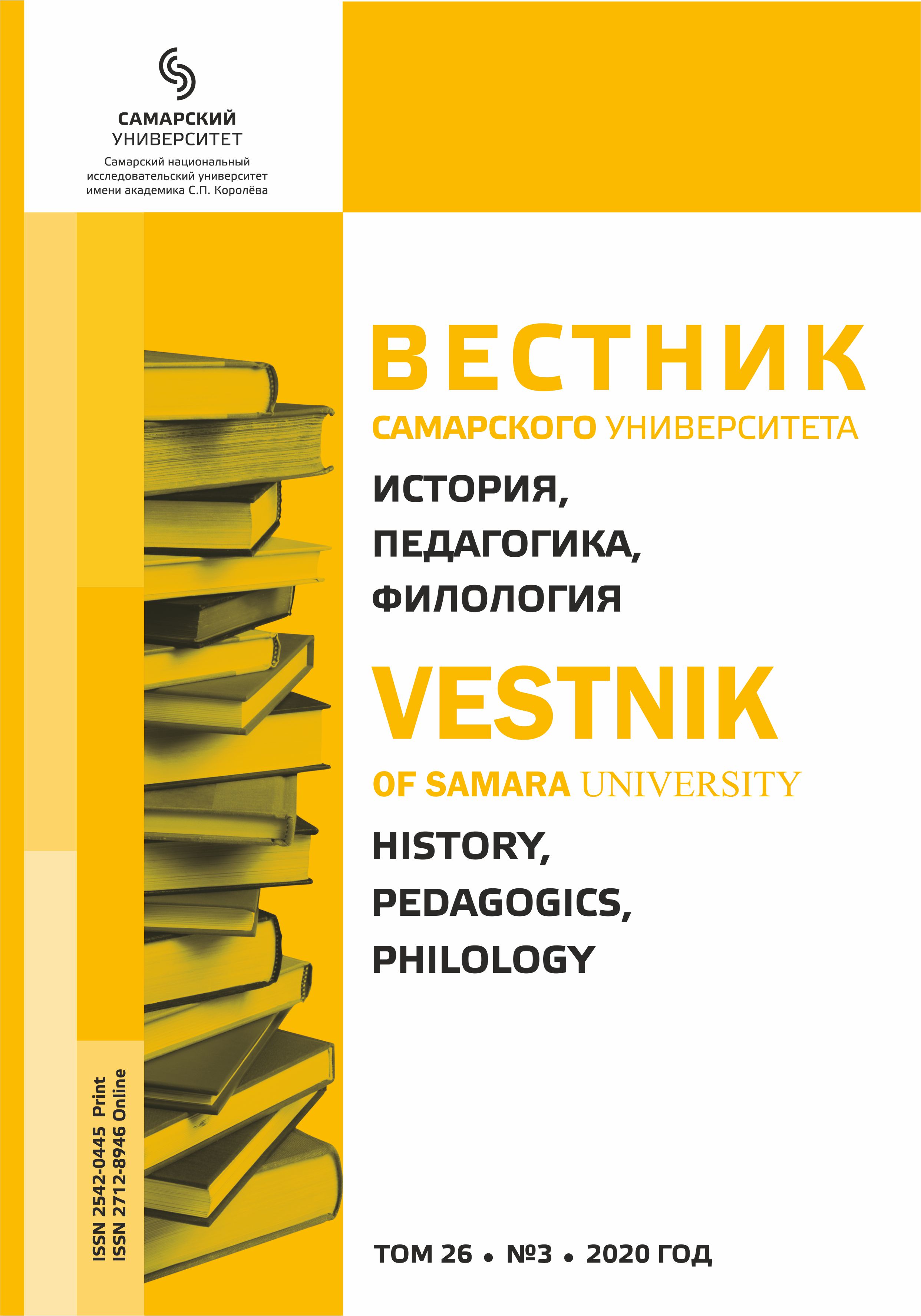Научное обоснование стратегии регионального развития КНР во второй половине ХХ века (на материале работ китайских экономистов Ма Хуна и Ли Цзинвэня)
- Авторы: Макеева С.Б.1
-
Учреждения:
- Иркутский государственный университет, г. Иркутск, Российская Федерация
- Выпуск: Том 26, № 3 (2020)
- Страницы: 8-15
- Раздел: Статьи
- URL: https://journals.ssau.ru/hpp/article/view/8178
- DOI: https://doi.org/10.18287/2542-0445-2020-26-3-8-15
- ID: 8178
Цитировать
Полный текст
Аннотация
В статье на базе анализа основных произведений известных китайских ученых Ма Хуна и Ли Цзинвэня представлены научные выводы по вопросам реализации стратегии социально-экономического регионального развития КНР во второй половине ХХ в. по следующим направлениям: комплексной оценке политики «реформ и открытости», анализу рационализации систем управления экономикой, исследованию вопросов межрегиональной конкуренции и перспектив развития «социалистической товарной экономики». В китайской историографии вопросы стратегических социально-экономических преобразований находят отражение в монографиях экономистов, географов Ань Хусена, Ван Шэнцзина, Е. Юмин, Жэнь Баопина, Лю Вэйдуна, Сунь Цзювэня, Сунь Шанцина, У Шуцина, Цао Юйхоя, Цзин Юэцзюня, Чжан Вэньчжуна, Чжан Сяолэя и Чэн Бидина, а также на страницах таких журналов, как «Цзинцзи гуаньча» («Экономическое наблюдение»), «Чжунго гуне цзинцзи» («Промышленная экономика Китая»), «Чэнши гуйхуа» («Градостроительство»), «Цюйюй цзинцзи пинлунь» («Региональный экономический обзор»), «Гуоцзи вэньти яньцзю» («Исследования международных вопросов»), «Чжунго бяньцзян ши ди яньцзю» («Исследование истории и географии пограничных районов Китая»). Целью данной статьи стало выявление особенностей научного обоснования социально-экономических преобразований в КНР во второй половине ХХ вв. китайскими учеными-экономистами Ма Хуном и Ли Цзинвэнем. Для достижения данной цели при использовании метода логического и конкретного анализа основных произведений ведущих китайских ученых-экономистов были выявлены закономерности в научном обосновании реализации стратегии социально-экономического регионального развития КНР во второй половине ХХ века.
Об авторах
С. Б. Макеева
Иркутский государственный университет, г. Иркутск, Российская Федерация
Автор, ответственный за переписку.
Email: morenov@ssau.ru
ORCID iD: 0000-0003-2953-0411
кандидат исторических наук, ведущий научный сотрудник Института социально-политических исследований Федерального научно-исследовательского социологического центра Российской академии наук
Список литературы
- Айзард 1975 – Айзард У. Введение в региональную науку. Прентис-Холл, 1975. С. 506.
- Борох 2017 – Борох О.В. Ван Янань и концепция «китайской экономической науки» // Проблемы Дальнего Востока. 2017. № 1. С. 72–84. URL: https://elibrary.ru/item.asp?id=28916017.
- Вебер 1926 – Вебер А. Теория размещения промышленности. Ленинград; Москва, 1926. 223 c.
- Виноградов 2006 – Виноградов А.В. К методологии изучения китайской модернизации // Проблемы Дальнего Востока. 2006. № 2. С. 115–127. URL: https://elibrary.ru/item.asp?id=9251425.
- Денисон 1975 – Денисон Э. Источники экономического роста в США и альтернативы перед США. Москва: Прогресс, 1975. 112 с.
- Калдор 1957 – Калдор Н. Модель экономического роста // Экономический журнал. 1957. Т. 67. С. 591–624.
- Кристаллер 1966 – Кристаллер В. Центральные места на юге Германии. Нью Джерси: Энглвудские скалы, 1966. 230 с.
- Лёш 2007 – Лёш А. Пространственная организация хозяйства. Москва: Наука, 2007. 664 c. URL: https://elibrary.ru/item.asp?id=19843734.
- Ли Цзинвэнь 1995 – Ли Цзинвэнь. 科技富国论 = Обогащение государства научными технологиями. Пекин, 1995. 496 с.
- Ли Цзинвэнь 1993 – Ли Цзинвэнь. 生产率与中美日经济增长研究 = Исследование производительности и экономического роста Китая, США и Японии. Пекин, 1993. 532 с.
- Ли Цзинвэнь 2001 – Ли Цзинвэнь. 21世纪的中国经济发展战略 = Стратегия экономического развития Китая в XXI веке. Пекин, 2001. 354 с.
- Макеева 2019 – Макеева С.Б. Вклад ученых-экономистов Ли Цзинвэня, Ма Хуна в китайские регионоведческие исследования второй половины ХХ века // XXX Международный конгресс по источниковедению и историографии стран Азии и Африки: к 150-летию академика В.В. Бартольда (1869–1930) 19–21 июня 2019 г.: материалы конгресса. Санкт-Петербург, 2019. С. 93–94. URL: https://elibrary.ru/item.asp?id=40643663.
- Макеева 2019 – Макеева С.Б. Проблемы регионального развития КНР в работах китайских ученых-экономистов // Россия и Китай: история и перспективы сотрудничества: материалы VIII Международной науч.-практ. конф. Благовещенск: БГПУ, 2019. С. 101–106. URL: https://elibrary.ru/item.asp?id=37608446.
- Ма Хун 1984 – Ма Хун. 经济结构与经济管理 = Структура экономики и управление экономикой. Пекин, 1984. 333 с.
- Ма Хун 1982 – Ма Хун. 中国经济调整改革与发展 = Реформы и развитие экономики Китая. Шаньси, 1982. 404 с.
- Ма Хун 1982 – Ма Хун. 试论我国社会主义经济发展的新战略 = О новой стратегии социалистического экономического развития Китая. Пекин, 1982. 134 с.
- Ма Хун 1985 – Ма Хун. 社会主义制度下的商品经济 = Товарное хозяйство в условиях социалистического строя. Шанхай, 1985. 69 с.
- Портяков, Степанов 1984 – Портяков В.Я., Степанов С.В. Ученые КНР о стратегии социально-экономического развития страны // Проблемы Дальнего Востока. 1984. № 3. С. 35–47.
Дополнительные файлы













